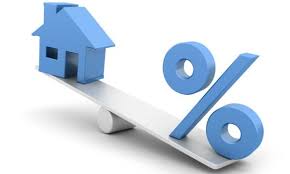
Will mortgage rates rise significantly this year?
Anyone associated with real estate saw that the federal reserve did not raise rates at their meeting 3/16/16. How is this possible that rates will not increase substantially? At their recent meeting on Wednesday they implied they intend to increase rates later this year.
First, it is important to note that the federal reserve does not directly control mortgage rates. The fed controls the “federal funds rate”. The federal funds rate is the rate at which banks and credit unions lend reserve balances to other banks and credit unions overnight. In a nutshell this is the rate banks get on their funds. Here is a more detailed explanation from Wikipedia .
So how are mortgage rates set? Unfortunately, mortgage rates are not “set”. There is no government or private party that can set rates per se. Mortgage rates are typically based on the 10 year treasury yield. So how does this work.
Before discussing rates, it is important to understand how bond yields work. The most important piece of this equation is the relationship between a bond price and their return. For treasuries, it is critical to note that a bond price and its yield move in inverse. What this means is that a higher bond price results in a lower yield and vice versa where a higher yield results in a lower bond price. For simplification purposes, I will not get into the full details of why bonds function the way that they do, just rest assured that it works this way and will always work this way.
With this key piece of information, we can now understand why mortgages do not move in direct correlation with the federal funds rate. For example currently there is a flight to quality (aka people desire to put their funds in high quality liquid assets for whatever reason) which has driven bond prices up and therefore yields down, in turn mortgages have remained low.
With all this financial talk why am I convinced yields will stay low (prices will stay high on bonds). There are a number of reasons. First, the international uncertainty (think China’s market gyrations or Europe’s negative interest rates. This international uncertainty has driven a demand for one of the most stable/safe assets, treasuries. Based on supply and demand, as there is more demand, prices will increase. Second, the fed is very nervous to raise rates. With almost every other developed country lowering rates to stimulate their economy the fed would counteract these measures if they acted too quickly. The majority of trade throughout the world is conducted in dollars, as the fed raises rates, the dollar becomes stronger which will hurt many economies and also hurt anyone exporting from the US (stronger dollar means US goods are more expensive). Third, the fed states that they are data driven, due to the sharp decline in commodities, US inflation has been mediocre. The economy is furthermore also just putting along at a slow pace. This view was reinforced earlier this week when the labor report came out and showed no average increase in wages. The most recent consumer spending index was also revised downward as consumers made less retail sales.
Long and short, look for rates to hang out in record low territory for a bit longer.
Written by Glen Weinberg, COO/ VP Fairview Commercial Lending. Glen has been published as an expert in hard money lending, real estate valuation, financing, and various other real estate topics in the Colorado Real Estate Journal, the CO Biz Magazine, The Denver Post, The Scotsman mortgage broker guide, Mortgage Professional America and various other national publications.
Fairview is a hard money lender specializing in private money loans / non-bank real estate loans in Georgia, Colorado, Illinois, and Florida. They are recognized in the industry as the leader in hard money lending with no upfront fees or any other games. Learn more about Hard Money Lending through our free Hard Money Guide. To get started on a loan all they need is their simple one page application (no upfront fees or other games).
